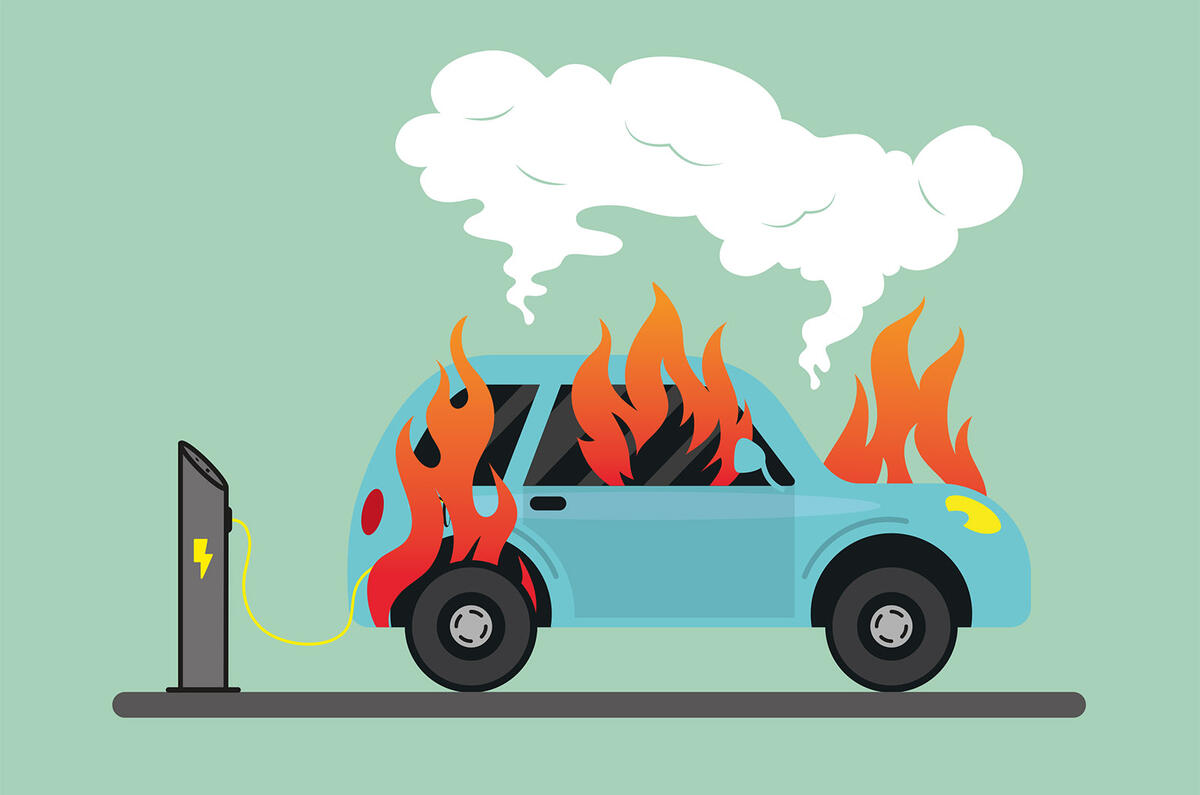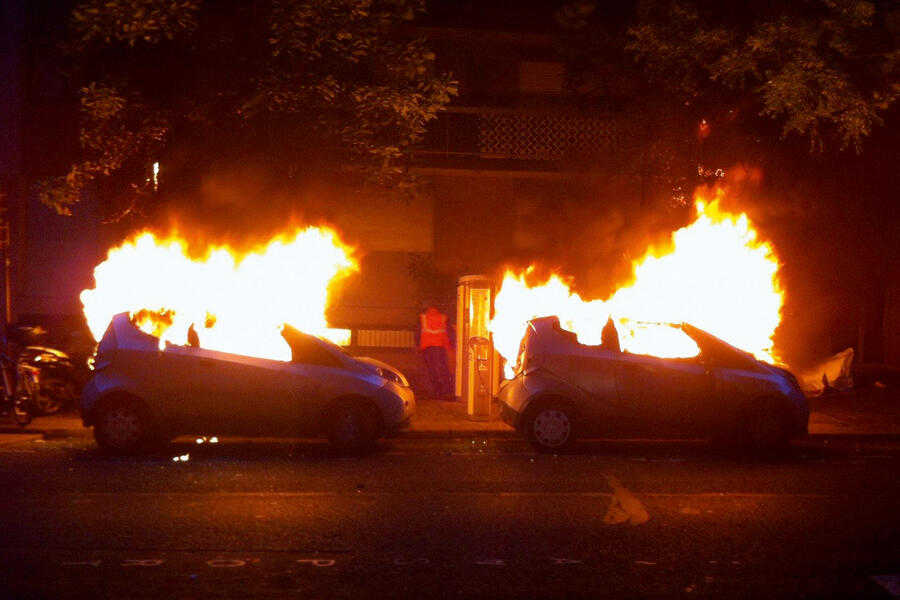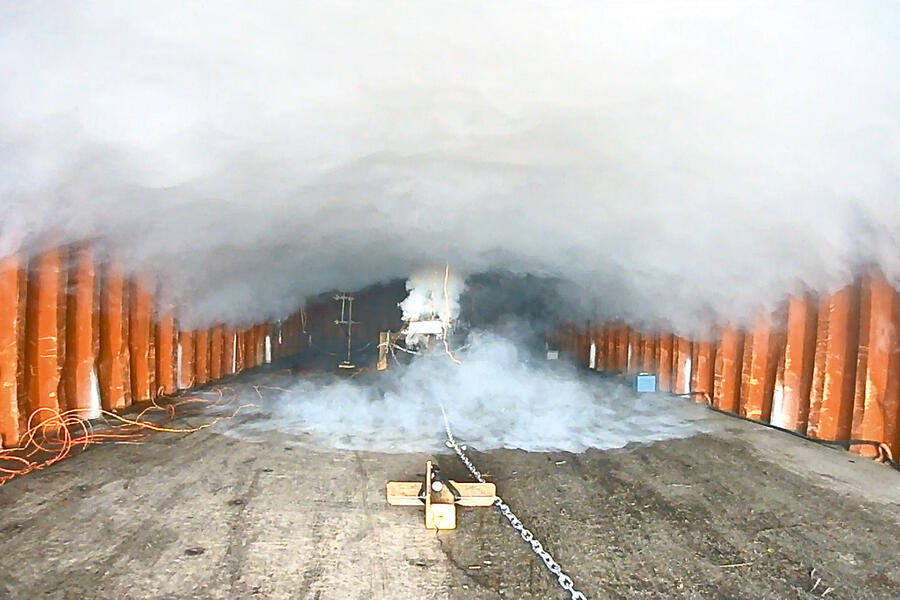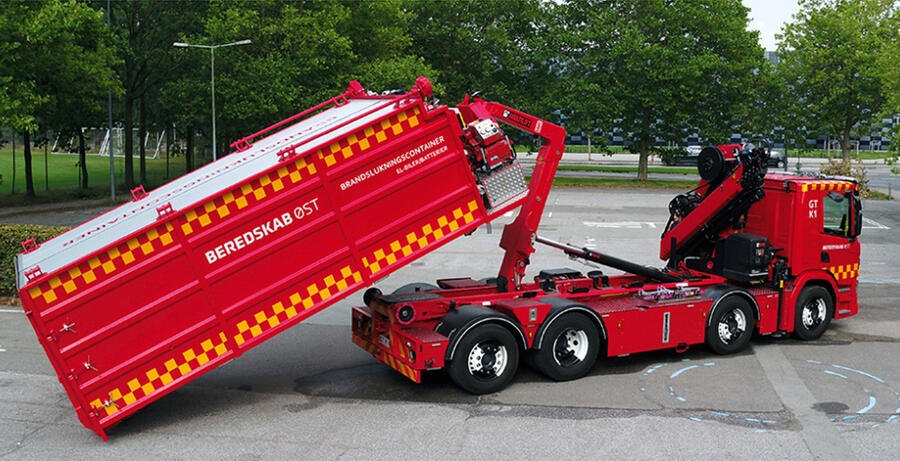As the prominence of electric cars on UK roads rapidly grows, more attention is turning to any potential safety concerns that such new technology presents.
One of the major concerns presented by the introduction of electric cars is the risk of fire - or, rather, the perceived risk of fires involving electric cars.
Petrol and diesel cars still catch fire (remember the spate of Vauxhall Zafira fires not so long ago?), but given how recently electric vehicles were introduced, they make the news far more often, and sometimes unfairly.
As the world gets used to this kind of technology and protocols are put in place to safeguard against disasters (for example, ship owners are increasingly being told to protect their vessels against car fires), it's worth getting to grips with the statistics, why these fires command so much attention, how fire crews deal with them and what it means for you.
Are electric car fires common?
EV fires aren't a common occurrence. In fact, data gathered over the last few years suggests EV fires are a lot more rare than internal combustion fires.
According to the Authority for Social Protection and Preparedness in Sweden, of the average 3400 vehicle fires that occur each year in the country, just 0.4% of them are electric cars, and 1.5% are hybrid cars.
Per the London Assembly and the Greater London Authority, 2023 saw 493 petrol cars catch fire, compared to 138 diesel cars and just 7 battery electric cars.
According to Honeywell Safety and Productivity Solutions, 239 fires recorded in the UK from July 2022 to June 2023 were linked to EVs. While this is an 83% increase year on year, it’s important to note the number has increased along with the increasing presence of EVs on our roads.
Meanwhile, according to Bedfordshire Fire and Rescue Service, some 1898 fires in the county in 2019 were from petrol and diesel vehicles. Just 54 were from EVs.
Another study by the Swedish Civil Contingencies Agency found that EVs are 20 times less likely to catch fire than ICE cars.
An additional study by that agency and an American insurer found that just 25 out of 100,000 EVs suffer fire damage.
By comparison, 1530 per 100,000 ICE cars experience fire, and hybrid vehicles suffer a much higher risk of 3475 per 100,000.









Join the debate
Add your comment
"Meanwhile, according to Bedfordshire Fire and Rescue Service, some 1898 fires in the county in 2019 were from petrol and diesel vehicles. Just 54 were from EVs."
A meaningless statement. How many EVs in Bedfordshire in 2019 vs how many petrol and diesel? What if there were only 54 EVs in Bedfordshire?
I'm sure that a professor of pure and applied electrochemistry at Newcastle University and senior advisor to the National Fire Chiefs Councilure could afford a Nissan Leaf, even a used one?
Professors are wise people and the respected Newcasle University professor understand econimics. He says that he is not rich enough to afford a cheap car, in order to prevent Her Majesty’s Revenue and Customs officers to pay him a visit.
understans economics.
Sorry for the errors, I wrote in a hurry, running away from HMRC officers.
I guess you are not familiar with academic salaries, then - his implication that he couldn't afford one is entirely plausible. I co-authored 150 modern languages text books, including the best-selling schools French text book in history, and I certainly couldn't afford one. Professors, like nurses and teachers, are scandalously underpaid.
Understanding Cell chemistry is the key to understanding Thermal Runaway. I'm working with a small start-up called Nanoz that has a very unique way of detecting unstable battery cells or cells beginning the early stage of TR long before a fire becomes an issue. It has an ability to seek out individual molecules of leaking cell gases, which it can identify a gas or gases associated with Thermal Runaway and raise the alarm. This has never previously been possible. This could potentially end all possibilitiy of a EV or battery fire.